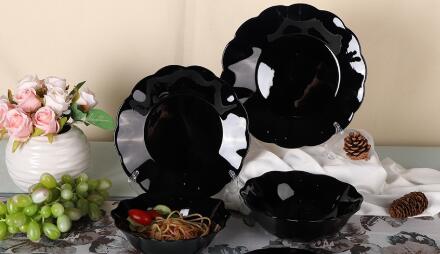Caring for Your Glassware: Tips for Cleaning and Maintenance from Garbo
Pulished on Jul. 05, 2024Glassware, with its timeless elegance and versatility, is an essential component of both everyday life and special occasions. Whether you're enjoying a quiet evening at home with a glass of wine or hosting a large gathering, your glassware plays a pivotal role in the experience. However, to maintain its beauty and functionality, proper care and maintenance are crucial. At Garbo, a leading glassware exporter based in China, we pride ourselves on providing high-quality glass products. Here, we share our expert tips on how to care for your glassware to ensure it remains in pristine condition for years to come.
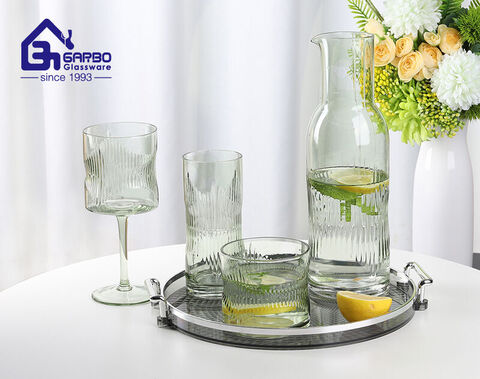
Understanding the types of glassware you own is the first step in ensuring proper care. From glass cups and mugs to glass decanters, stemware, vases, and bowls, each type requires specific attention. Glass cups and mugs, used daily for beverages, need frequent cleaning to prevent residue buildup. Glass decanters, often used for wine, require special care to remove stains and odors. Delicate glass stemware, such as wine glasses and champagne flutes, must be handled with extra caution. Glass vases, which can accumulate residue from water and plant material, need thorough cleaning. Glass bowls and plates, versatile for serving food, must be maintained to prevent food stains.
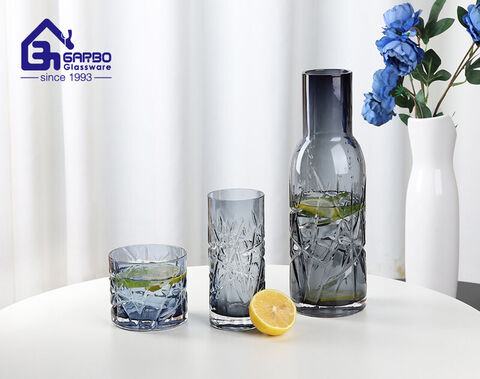
When it comes to cleaning, hand washing is the preferred method for most glassware, especially delicate and finely crafted pieces. Use lukewarm water, as extreme temperatures can cause glass to crack or break. Opt for a mild dish detergent, as harsh chemicals can damage the glass surface. A soft sponge or cloth is ideal for gentle cleaning, and thorough rinsing ensures all soap residue is removed to prevent streaks and spots. Allow your glassware to air dry on a clean dish rack, avoiding dish towels that can leave lint or cause scratches.
While hand washing is ideal, some glassware is dishwasher safe. If you choose to use a dishwasher, always check the manufacturer's instructions to ensure the glassware is dishwasher safe. Place glassware on the top rack to minimize exposure to heat and pressure, select a gentle or glassware cycle, and avoid overloading to prevent clinking and breaking. Opt for air drying instead of heat drying to reduce the risk of thermal shock.
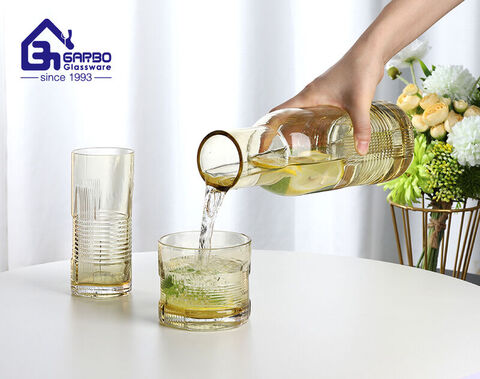
Special care is needed for different types of glassware. Glass decanters, used for wine, can develop stains and odors. Immediately rinse decanters with warm water after use to prevent wine from drying and staining. For stubborn stains, use decanter cleaning beads or a white vinegar solution. Glass stemware is delicate and requires careful handling. Hold the glass by the stem to avoid putting pressure on the bowl, use a soft, flexible stemware brush for cleaning, and avoid twisting the bowl and stem in opposite directions to prevent breakage.
Glass vases can accumulate residue from flowers and water. Clean them regularly to prevent buildup, using baking soda and vinegar for tough stains. A bottle brush can help clean vases with narrow necks thoroughly. Glass bowls and plates, versatile for serving food, can stain easily. Rinse food residue off immediately after use to prevent staining, and use a baking soda paste for tough stains. Avoid using abrasive cleaners or scrubbers that can scratch the surface.
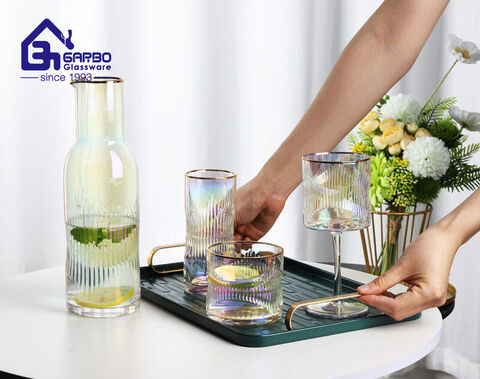
Preventive measures can extend the life of your glassware. Proper storage is key. Store glasses upright to avoid pressure on the rims, which can cause chipping, and avoid stacking glassware to reduce the risk of breakage. For stemware, consider using dividers or stemware racks to keep each piece separate and secure. Handling glassware with care is crucial to prevent accidents. Avoid sudden temperature changes, use coasters and mats to protect glassware from hard surfaces, and lift rather than drag glassware across surfaces to avoid scratches and chips.
Despite your best efforts, breakage can occur. Handling broken glass safely is important. Wear gloves to protect your hands from sharp edges, use a broom and dustpan to sweep up larger pieces, and use duct tape to pick up tiny glass shards that are difficult to see. Dispose of broken glass in a sturdy container to prevent injury.
Proper care and maintenance of your glassware can significantly enhance its lifespan and keep it looking beautiful. At Garbo, we understand the value of quality glassware and the importance of preserving it. By following these tips, you can enjoy your glassware for many years, whether it’s a daily-use item or a cherished piece for special occasions. Investing a little time and effort in caring for your glassware will pay off with long-lasting elegance and functionality.








